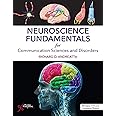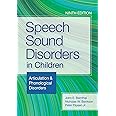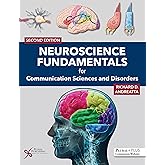
Download the free Kindle app and start reading Kindle books instantly on your smartphone, tablet or computer—no Kindle device required.
Read instantly on your browser with Kindle for Web.
Using your mobile phone camera, scan the code below and download the Kindle app.

Neuroscience Fundamentals for Communication Sciences and Disorders Hardcover – 14 December 2018
by
Richard D. Andreatta
(Author)
Sorry, there was a problem loading this page.Try again.
promo code: PRIMESAVE010 Terms | Shop items applied at checkout Terms | Shop items
Or $20.32 /mo (6 mo). View 2 plans
* The payment amount shown here does not include the cost of any additional selected options. See total payment amount (including shipping cost) at the checkout.
** Latitude: Monthly credit card fee (currently $10.95) will apply. Equal monthly repayments apply, account fees, late fees apply. Provider may charge interest. Exclusions apply. For more details click on Learn more above. You acknowledge that credit is provided to you by Latitude Finance Australia ABN 42 008 583 588, Australian Credit Licence number 392145, and the instalment plan is subject to the terms and conditions imposed on you by Latitude. Equal monthly repayments apply (exact amounts specified in your Latitude statement) and card fees will be charged by Latitude. If you fail to make your minimum monthly payment for two consecutive months, you agree that your equal monthly payment plans (Instalment Interest Free Promotion) with a term of fewer than 33 months will change into a minimum monthly payment plan (Interest Free Promotion) for the remaining duration of the initial plan term. If you fail to make a payment on time, Latitude will charge late fees. Latitude will also charge interest on any outstanding balance at the end of the instalment plan period you select at the rate set out in its T&Cs (currently 29.99% p.a.). Interest may also apply to other Latitude credit card transactions or if you do not comply with the Latitude T&Cs.
The payment amount shown here does not include the cost of any additional services. See total payment amount (including shipping cost) at the checkout.
^Zip Pay: This is a credit product and is interest free. Minimum monthly repayments are required. A monthly account fee of $9.95 is charged by Zip and is subject to change. Pay your closing balance in full by the due date each month and Zip will waive the fee. Available to approved applicants only and subject to completion of satisfactory credit assessment by Zip. Other charges may be payable. Fees and charges subject to change. Zip T&Cs apply. T&Cs available on application. See your Zip contract for further details. Credit provided by Zip Money Payments Pty Ltd (ABN 58 164 440 993), Australian Credit Licence Number 441878.
*Zip Money: Interest free term subject to minimum spend and promotional partner offer. Available to approved applicants only and subject to completion of satisfactory credit check. The repayment advertised will repay the transaction balance within the advertised interest free period. A monthly account fee of $9.95 applies and a one off establishment fee may apply for new customers. Under the contract, minimum monthly repayments are required and will vary depending on your credit limit. Instalment plans split eligible purchases of $300 and above into equal repayments within the interest free period. If you turn off instalments, transactions will be reverted to the minimum monthly repayment. Paying only the minimum monthly repayment may not necessarily repay a purchase within the interest free period. Any balance outstanding at the expiry of the interest free period will be charged at the standard variable interest rate, 25.9% per annum, as at 1 June 2023. Other charges may be payable, see T&Cs. Interest, fees and charges are subject to change. Terms & Conditions apply and are available on application. See your contract for further details. Credit provided by ZipMoney Payments Pty Ltd (ABN 58 164 440 993), Australian Credit Licence Number (441878).
You can select and apply an appropriate plan based on your cart value at checkout.
-
3-12 mo instalmentsLatitude
-
Pay at Your PaceZip
| Payment options | Interest | Total* |
|---|---|---|
| $20.32/mo (6 mo) minimum purchase of $100 | 0% | $121.88 |
| $40.63/mo (3 mo) minimum purchase of $50 | 0% | $121.88 |
** Latitude: Monthly credit card fee (currently $10.95) will apply. Equal monthly repayments apply, account fees, late fees apply. Provider may charge interest. Exclusions apply. For more details click on Learn more above. You acknowledge that credit is provided to you by Latitude Finance Australia ABN 42 008 583 588, Australian Credit Licence number 392145, and the instalment plan is subject to the terms and conditions imposed on you by Latitude. Equal monthly repayments apply (exact amounts specified in your Latitude statement) and card fees will be charged by Latitude. If you fail to make your minimum monthly payment for two consecutive months, you agree that your equal monthly payment plans (Instalment Interest Free Promotion) with a term of fewer than 33 months will change into a minimum monthly payment plan (Interest Free Promotion) for the remaining duration of the initial plan term. If you fail to make a payment on time, Latitude will charge late fees. Latitude will also charge interest on any outstanding balance at the end of the instalment plan period you select at the rate set out in its T&Cs (currently 29.99% p.a.). Interest may also apply to other Latitude credit card transactions or if you do not comply with the Latitude T&Cs.
| Account type | Interest |
|---|---|
| Zip Pay | Always interest free^ |
| Zip Money | 12 mo interest free,
25.9% p.a. thereafter* |
^Zip Pay: This is a credit product and is interest free. Minimum monthly repayments are required. A monthly account fee of $9.95 is charged by Zip and is subject to change. Pay your closing balance in full by the due date each month and Zip will waive the fee. Available to approved applicants only and subject to completion of satisfactory credit assessment by Zip. Other charges may be payable. Fees and charges subject to change. Zip T&Cs apply. T&Cs available on application. See your Zip contract for further details. Credit provided by Zip Money Payments Pty Ltd (ABN 58 164 440 993), Australian Credit Licence Number 441878.
*Zip Money: Interest free term subject to minimum spend and promotional partner offer. Available to approved applicants only and subject to completion of satisfactory credit check. The repayment advertised will repay the transaction balance within the advertised interest free period. A monthly account fee of $9.95 applies and a one off establishment fee may apply for new customers. Under the contract, minimum monthly repayments are required and will vary depending on your credit limit. Instalment plans split eligible purchases of $300 and above into equal repayments within the interest free period. If you turn off instalments, transactions will be reverted to the minimum monthly repayment. Paying only the minimum monthly repayment may not necessarily repay a purchase within the interest free period. Any balance outstanding at the expiry of the interest free period will be charged at the standard variable interest rate, 25.9% per annum, as at 1 June 2023. Other charges may be payable, see T&Cs. Interest, fees and charges are subject to change. Terms & Conditions apply and are available on application. See your contract for further details. Credit provided by ZipMoney Payments Pty Ltd (ABN 58 164 440 993), Australian Credit Licence Number (441878).
{"desktop_buybox_group_1":[{"displayPrice":"$121.88","priceAmount":121.88,"currencySymbol":"$","integerValue":"121","decimalSeparator":".","fractionalValue":"88","symbolPosition":"left","hasSpace":false,"showFractionalPartIfEmpty":true,"offerListingId":"tWqSYedqSCrybQKaUxCIId4IvGsI4bEeTi15AzLiAIvlpG2lrCKS9pmnB6yKbeajhwjmFt4CN3ZD3x31A3MxNJuYzPeQEwK%2FI076aBNT%2FLGLGt2Bwg91yaqvgLuXHAq8iwNzuwaOQsDOxZPGsB%2BwsAoBZdAr%2BFBkbs5%2F1LwW1rC%2FaKnu%2B3ibkjDHGea74JjY","locale":"en-AU","buyingOptionType":"NEW","aapiBuyingOptionIndex":0}]}
Purchase options and add-ons
Neuroscience Fundamentals for Communication Sciences and Disorders is a comprehensive textbook for undergraduate or graduate neuroscience courses in communication sciences and disorders programs. The goal of the textbook is to provide a thorough overview of the features, principles, processes, and structures underlying the working of the human nervous system. The textbook is designed to provide students with the neuroanatomical and physiological content relevant to CSD applications, and also content that places these features into the context of a behaving and communicative human.
Key Features:
- An emphasis on fundamental information on anatomy, neurophysiological, and functional processes using a conversational writing style.
- Beautifully illustrated with full-color anatomical and component figures, photographs, schematic line drawings, process flow-charts, and tables.
- Three chapters on the neural bases of speech, language, and hearing help integrate the basic information from earlier chapters with findings specific to CSD.
- Each chapter begins with an introduction and learning objectives and ends with review questions and a top ten summary list.
- Bolded key terms throughout with a glossary of definitions for comprehension.
- Clinical Importance Boxes highlight clinically relevant disorders and syndromes that compliment topic coverage.
- Interesting Facts Boxes highlight interesting, fun, and quirky facts about the nervous systems structure, physiology, and functionality.
- A PluralPlus companion website with PowerPoint lecture slides, instructional videos, and a sample syllabus for instructors, and interactive quizzes and flashcards for students.
NOTE: This book comes with supplementary content on a PluralPlus companion website. If you purchase or rent a used copy of the printed book, the code to access the website printed inside the book may have been previously redeemed/used or be incorrect and you will not be able to use it. To guarantee access to the website, it is recommended you purchase a new copy of this book.
- Print length700 pages
- LanguageEnglish
- PublisherPlural Publishing, Inc.
- Publication date14 December 2018
- Dimensions22.23 x 4.45 x 27.94 cm
- ISBN-101597568899
- ISBN-13978-1597568890
There is a newer edition of this item:
Neuroscience Fundamentals for Communication Sciences and Disorders
$219.77
(2)
Only 1 left in stock.
$219.77
(2)
Only 1 left in stock.
Frequently bought together

This item: Neuroscience Fundamentals for Communication Sciences and Disorders
$121.88$121.88
Get it 27 Jun - Jul 7
Only 3 left in stock.
$124.00$124.00
Get it as soon as Saturday, June 21
In stock
$152.92$152.92
Get it as soon as Saturday, June 21
Only 2 left in stock (more on the way).
Total Price: $00$00
To see our price, add these items to your cart.
Try again!
Added to Cart
Add all 3 to Cart
Some of these items dispatch sooner than the others.
Choose items to buy together.
Customers who viewed this item also viewed
Page 1 of 1 Start again
Product description
Review
"The primary strength of this text is in its detail and organization. A very complete, well-written text. Its scope includes explanations of the mechanisms of the brain underlying basic and skilled actions from cellular functions, anatomic structures and physiologic processes of the nervous system. With a solid background in neuroscience, students will be able to better understand brain-behavior relationships in order to make appropriate clinical assessment and treatment decisions. The relatable examples, with a touch of humor, makes the text very readable. Students should be able to relate to all analogies and this prevents the reader from getting too bogged down in detail as they attempt to understand complex concepts." --Janis M. Jarecki-Liu, PhD, Professor, Department of Communication Sciences and Disorders, Clarion University of Pennsylvania
"The author is very creative and the relatable, conversational style of this book is a definite strength. The author uses well placed, vivid analogies to explain concepts that can be quite challenging for students. The overall structure and organization of the book is also a strength as it uses a logical progression of the material." --Irene M. Barrow, PhD, Professor, Department of Communication Sciences and Disorders, James Madison University
"This book is a great improvement over what I ve used in the past and other books available. It is well-written, has good and accurate figures, and accurate information." --Margaret Lehman Blake, PhD, Associate Professor, Communication Sciences and Disorders, University of Houston
"The author is very creative and the relatable, conversational style of this book is a definite strength. The author uses well placed, vivid analogies to explain concepts that can be quite challenging for students. The overall structure and organization of the book is also a strength as it uses a logical progression of the material." --Irene M. Barrow, PhD, Professor, Department of Communication Sciences and Disorders, James Madison University
"This book is a great improvement over what I ve used in the past and other books available. It is well-written, has good and accurate figures, and accurate information." --Margaret Lehman Blake, PhD, Associate Professor, Communication Sciences and Disorders, University of Houston
About the Author
Richard D. Andreatta, PhD, is an Associate Professor in Communication Sciences & Disorders (CSD) and Rehabilitation Sciences in the College of Health Sciences at the University of Kentucky, Lexington. Dr. Andreatta received his PhD in Speech Physiology and Neural Science from Indiana University, Bloomington, and completed postdoctoral work in animal laryngeal neurophysiology at the National Institutes of Health. Dr. Andreatta serves as the director of undergraduate studies in CSD and teaches courses in the speech sciences, speech anatomy & physiology, communication neuroscience, rehabilitation neuroplasticity, and dynamic systems theory. Dr. Andreatta is a recipient of the University of Kentucky Great Teacher Award and the UK College of Health Sciences Kingston Award for Teaching Excellence. Dr. Andreatta's research interests include sensory neuroscience and psychophysics in the orofacial system, laryngeal muscle biology, and the neurophysiology of speech production.
Product details
- Publisher : Plural Publishing, Inc.
- Publication date : 14 December 2018
- Edition : 1st
- Language : English
- Print length : 700 pages
- ISBN-10 : 1597568899
- ISBN-13 : 978-1597568890
- Item weight : 2.27 kg
- Dimensions : 22.23 x 4.45 x 27.94 cm
- Customer Reviews:
Customer reviews
4.7 out of 5 stars
4.7 out of 5
27 global ratings
- 5 star4 star3 star2 star1 star5 star86%9%0%0%5%86%
- 5 star4 star3 star2 star1 star4 star86%9%0%0%5%9%
- 5 star4 star3 star2 star1 star3 star86%9%0%0%5%0%
- 5 star4 star3 star2 star1 star2 star86%9%0%0%5%0%
- 5 star4 star3 star2 star1 star1 star86%9%0%0%5%5%
How are ratings calculated?
To calculate the overall star rating and percentage breakdown by star, we don’t use a simple average. Instead, our system considers things like how recent a review is and if the reviewer bought the item on Amazon. It also analyses reviews to verify trustworthiness.
No customer reviews
There are 0 customer reviews and 27 customer ratings.









